Green spaces bring life and purify the air, creating a harmonious living environment. While planting trees has numerous benefits, not all trees are suitable for planting in front of your house. According to East Asian principles of Feng Shui, certain trees are considered “evil trees” and are believed to bring negative energy, impacting the homeowner’s wealth, health, and destiny if placed in the wrong location, especially in front of the main entrance.
Here are 5 types of trees that are believed to be “evil trees” and are best avoided when planting in front of your house to prevent any harm to the household:
1. Mulberry Tree – Spreads Sadness and Blocks Wealth
While the Mulberry tree has its uses in traditional medicine and its fruits, leaves, and bark can be utilized, in Feng Shui, it is considered ill-advised to plant it in front of your house. This is due to the pronunciation of the word “mulberry” in certain languages, sounding similar to “pain” or “mourning.” Thus, it evokes negative connotations and associations with grief, illness, and loss.
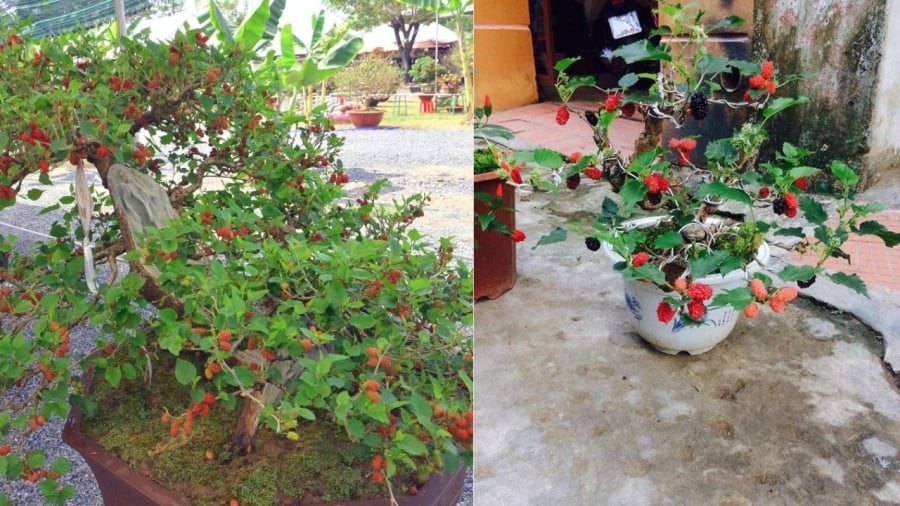
Additionally, Mulberry trees tend to absorb yin energy strongly, creating a cold and gloomy atmosphere. When placed in front of the house, where positive energy should be invited in, the Mulberry tree can block wealth and weaken positive energy, negatively impacting the health and destiny of family members.
2. Willow Tree – Brings Yin Energy and Depletes Good Fortune
The Willow tree, with its graceful branches and drooping leaves, may seem romantic, but it is one of the trees that should be avoided when planting in front of your house. In Feng Shui, the Willow tree represents sadness and weakness, making it difficult to retain good fortune.
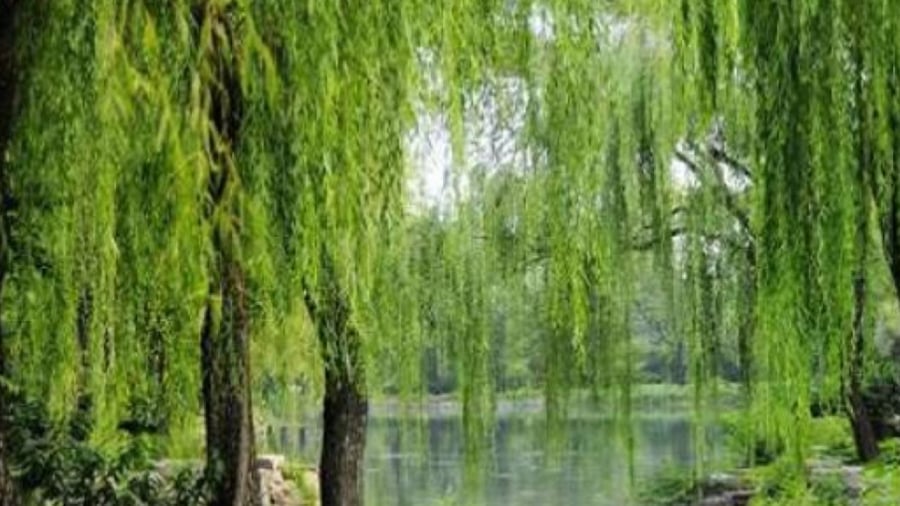
The word “willow” in certain languages also carries the meaning of “flowing away and not retaining.” Thus, planting a Willow tree in front of your house may cause wealth and good fortune to “flow away,” making it difficult to accumulate within the family. Additionally, Willow trees attract yin energy and can invite negative spiritual influences, impacting the harmony and well-being of the household.
3. Banyan Tree – Sacred but Laden with Yin Energy
The Banyan tree is a familiar symbol in folk culture and is often planted in communal areas such as village halls, temples, and cemeteries. However, it is never encouraged to plant a Banyan tree within residential compounds, especially in front of the main entrance.
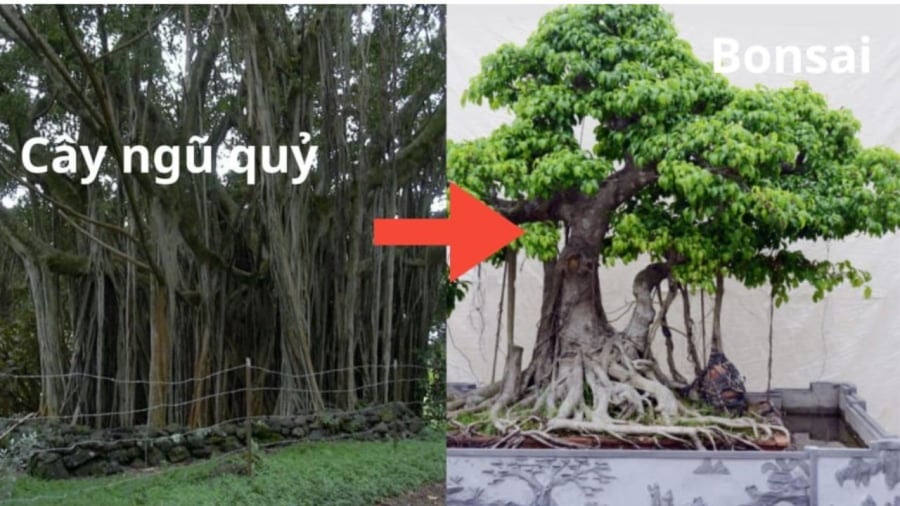
In Feng Shui, the Banyan tree carries strong spiritual energy, mostly of the yin type. With its large canopy and deep roots, it often attracts spirits and can disrupt the energy field, making the house’s atmosphere heavy and cold. Homeowners living with a Banyan tree at their doorstep may encounter gossip, stagnation in their careers, and declining health.
4. Cypress Tree – Cemetery Conifer, Symbol of Mourning
The Cypress tree, with its evergreen nature and resilient life force, is often planted in cemeteries. However, due to its association with the underworld, it becomes a taboo in residential Feng Shui, especially when placed in front of the main door.
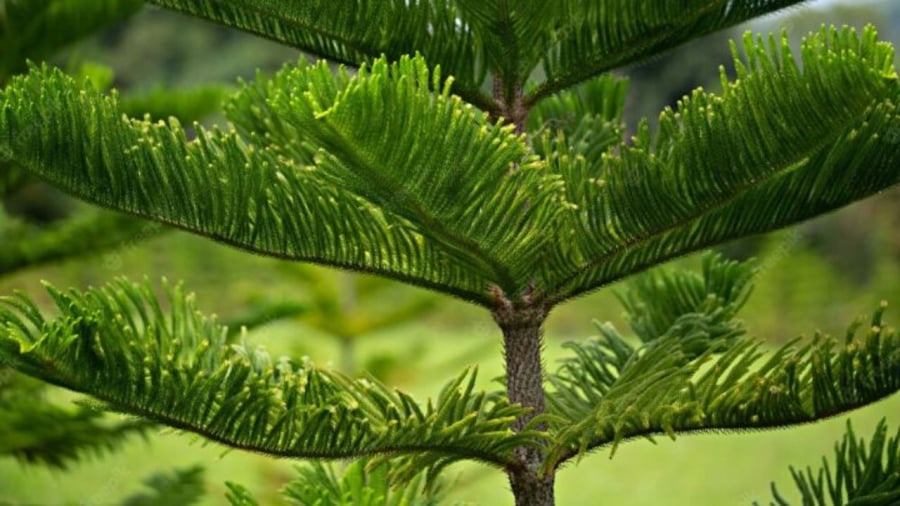
The Cypress tree is seen as a symbol of separation, sorrow, and mourning. Planting this tree in front of your house is akin to “welcoming sadness,” transforming your home into a place of mourning, negatively impacting the residents’ mental well-being. According to ancient beliefs, a house with a Cypress tree will struggle to prosper and may even decline.
5. Cactus or Thorny Plants – Sharp Thorns, Disrupting Positive Energy
Cacti are drought-tolerant plants with unique shapes, making them popular decorative choices. However, in Feng Shui, cacti are not recommended for planting in front of the house due to their prominent spines.
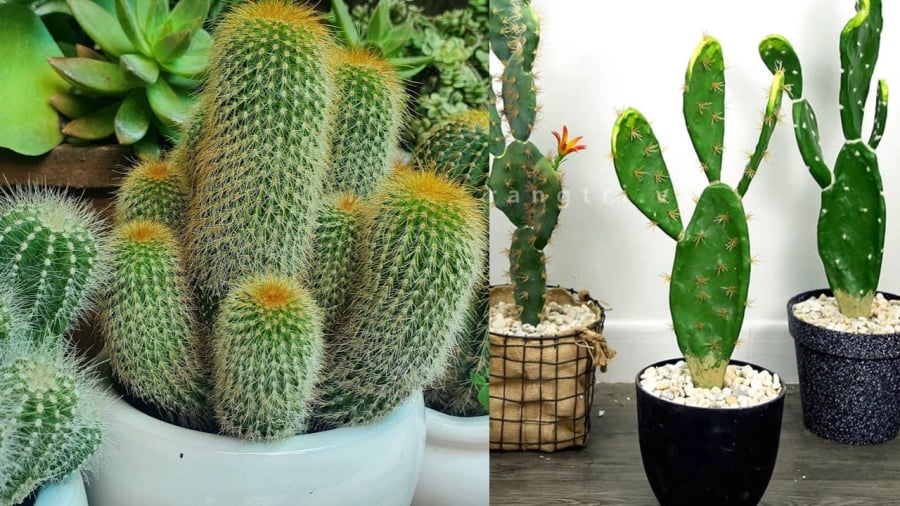
The spines of cacti are believed to disperse negative energy, disrupting the positive energy flow at the entrance, which is the main energy intake point of the house. This not only hinders wealth but also causes conflicts and arguments among family members. Additionally, the upward-pointing spines symbolize stagnation and hardship in career and life pursuits.
Notes on Choosing Trees to Plant in Front of Your House
To attract wealth, enhance positive energy, and create a harmonious living environment, homeowners are advised to choose trees with positive meanings that are easy to care for. Some recommended trees include the betel nut tree, the money tree, bamboo, the jade plant, or the crepe myrtle. These trees not only enhance the aesthetics but also bring positive energy, promoting peace and prosperity for the family.
Planting trees in front of your house is not merely a matter of aesthetics or biology; it is deeply rooted in Feng Shui principles, which influence the homeowner’s wealth, health, and career. Avoid the “evil trees” like the Mulberry, Willow, Banyan, Cypress, and Cactus, and you’ll inadvertently avoid creating obstacles for yourself.
Choosing the right tree and placing it in the right location is a simple yet effective way to invite prosperity and avoid misfortune, ensuring a harmonious and fortunate life for your family.
*For reference only.
































